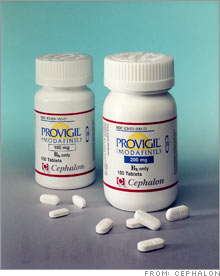The high price of drug patentsApotex's CEO is attacking drug patent settlements that he says benefit everyone except the consumer.(Fortune Magazine) -- In Canada and in the pharmaceutical industry, a 64-year-old man named Bernard Sherman has been famous - some might say infamous - for years. A rocket scientist with a Ph.D. from MIT, he is the founder of a privately held Canadian drugmaker called Apotex, which has made its reputation and money by provoking court battles with branded-pharmaceutical companies over the validity of their patents - and winning. Sherman, whose net worth is now almost $4 billion, is one of the richest men in Canada.  But only this past summer did Sherman make a name for himself in the U.S. by prompting both the ouster of Peter Dolan, the former CEO of Bristol-Myers Squibb (Charts), and the start of a criminal antitrust investigation into Bristol. The debacle began with a lawsuit that Bristol and its partner, Sanofi-Aventis (Charts), filed to prevent Apotex from selling a generic version of Plavix, a blood thinner that is the world's second-best-selling drug. The parties settled the lawsuit in the spring of 2006, with what Sherman has claimed was an agreement by Bristol and Sanofi to pay Apotex some $40 million. In turn, Apotex agreed not to launch a generic drug until 2011 - eight months before the patent protecting the drug was due to expire anyway. In essence, the settlement allowed Bristol to retain billions in profits that it would have lost had Apotex won the suit, and it gave Apotex a guaranteed payment instead of an uncertain one. The only losers were consumers, who might have gotten a cheaper, generic version of Plavix. At least that's how it looked, until Sherman did an astonishing thing: He revealed himself as an opponent of the very kind of settlement he seemed to have struck, and in the process thrust himself into the middle of a hot debate about how drug companies may be gaming the system. Complex law The system grows out of a 1984 law called the Hatch-Waxman Act, which seeks to get cheap drugs to market quickly by providing a way for generic-drug makers to challenge patents. Under Hatch-Waxman a generic company can file an application with the FDA to manufacture a patent-protected drug, claiming that its version does not violate existing patents because the patents are invalid, unenforceable or wouldn't be infringed. The patent owner can then file a lawsuit to stop the generic company. If the patent owner loses its case, the generic company that was the first to file with the FDA gets 180 days of market exclusivity. That is a big deal, because the first entrant can usually sell its drug at 70 percent to 80 percent of the branded drug's price, but the price - and therefore the profit - plummets with full competition. But what if the companies decide to settle? Both sides get certainty - which Wall Street likes. The patent owner gets to keep most of its profits, although it may agree to let the generic drug onto the market a little bit before the expiration of its patents. It may also agree to a licensing arrangement or something that puts cash in the generic company's till. This money is often referred to as a "reverse payment," because it's the opposite of the usual arrangement in which a company would pay a patent holder for the right to sell its product. And because the generic company that was first to file with the FDA gets to keep the 180-day exclusivity even if it settles, would-be subsequent challengers lose their incentive and maybe even their ability to enter the market (a second filer cannot enter until the first filer's 180 days have expired). What about consumers, who could have saved a lot of money - billions, in the case of some blockbuster drugs such as Plavix - had the generic company prevailed? The FTC has taken the position that reverse payments are a violation of antitrust law, and it has brought cases challenging them. |
Sponsors
|
